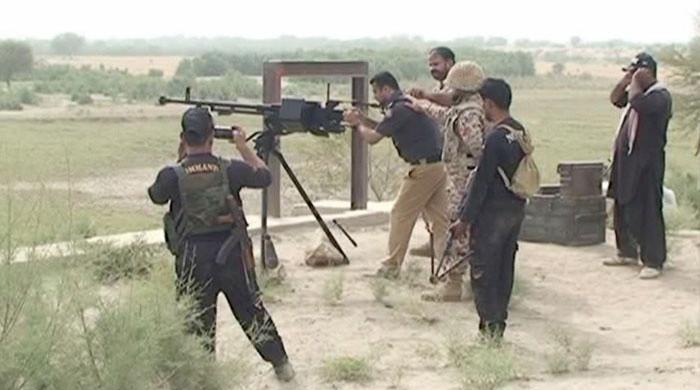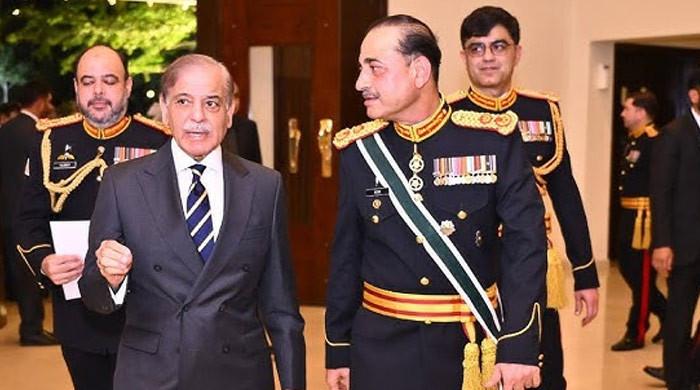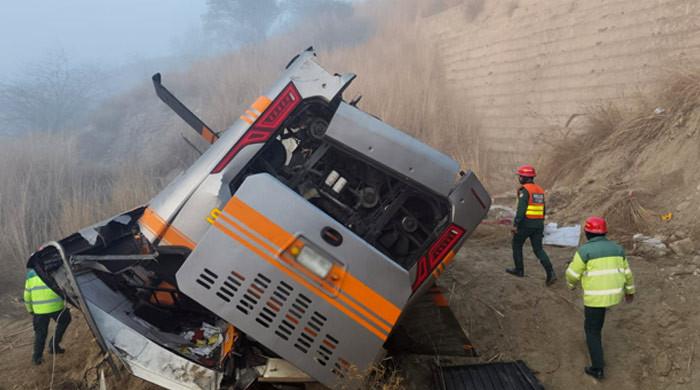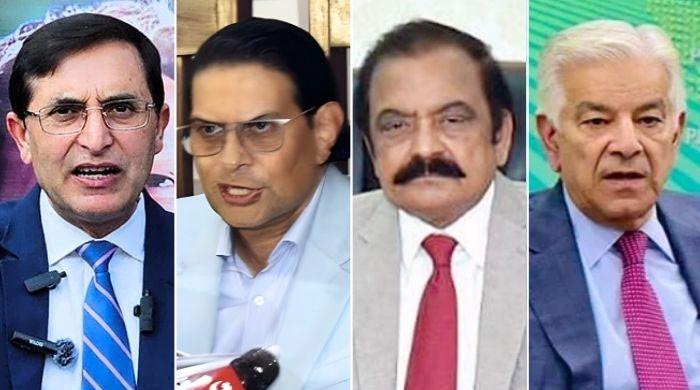The other MQM
For the Muttahida Quami Movement , a powerful political force reeling from an ongoing paramilitary-led operation in Karachi, the date, Aug. 22, 2016, will go down in history as the day...
August 25, 2017
For the Muttahida Quami Movement (MQM), a powerful political force reeling from an ongoing paramilitary-led operation in Karachi, the date, Aug. 22, 2016, will go down in history as the day the party was split into ‘good MQM’ and ‘bad MQM.’
Last August, a large number of MQM leaders and workers were on a hunger strike outside the Karachi Press Club against, allegedly, enforced disappearances and extrajudicial killing of its workers. Then on Aug. 22, mid afternoon, an outraged Altaf Hussain, the party chief, made a telephonic address from London. In his speech, Hussain incited the protesting workers to attack media houses, the Rangers headquarters, and the Sindh government’s secretariat. Soon after, activists, on his orders, ransacked a private television station. The attack left one dead and over a dozen people injured.
Unwittingly, Hussain’s party provided the provincial government and the law enforcement agencies another excuse to clampdown harder on its operations. Within hours of the storming, the Rangers picked up the party’s central leadership, including Farooq Sattar, and sealed Nine Zero – the MQM’s headquarters.
Hussain words did even more damage to its internal structure. Post-speech the party’s Pakistan-based leaders, who had repeatedly been embarrassed by their chief’s fierce and provocative outbursts, officially disassociated themselves from the London office and formed the Muttahida Quami Movement-Pakistan.
But this wasn’t enough. Shedding its old, tainted skin did little to convince its potential voters. Soon, a new set of challenges emerged. Most of the MQM-P’s leaders belong to the lower or lower-middle class communities living in Mohajir populated neighborhoods. Till now their politics was based around Hussain’s personality and personal clout. Slogans such as Hamain Manzil nahi Rahnuma Chayie and Jo Quaid Ka Ghaddar Hai, Wo Mot ka Haqdar Hai were not easy to jettison.
Some workers were confused. Others were stubborn. “We will not accept an MQM without Altaf Hussain, unless he dies,” a party’s unit-level in-charge in the Landhi area told Geo.tv.
Gradually, the MQM-P realized it would need to work harder to persuade voters to trust them. The split, they tell those who listen, was initiated to safeguard the Mohajir community and its vote bank in Karachi. The argument has caught the attention of some former loyalists of Hussain. According to a professor at the University of Karachi, who was part of the original MQM, many Mohajir intelligentsia – including officers from the community in the bureaucracy, especially those in the municipality – have agreed to support the MQM-P. “The Pakistan People’s Party wasn’t, and still isn’t, working in Mohajir neighborhoods,” he said, “ which was already caused a sense of deprivation among the community and a political vacuum.”
Others, who have their eyes on the city’s Mohajir vote bank, include the Pak Sarzameen Party and the MQM-Haqiqi. A recent call by the MQM-P to hold a multi-party conference in Karachi was received favorably by both the PSP and MQM-H. The aim to sit down with rival factions was, ostensibly, to find a solution to the problems being faced in the metropolis. But in reality, it may have been a strategy to show voters that all Mohajir parties are on the same page about ousting Hussain from community politics.
The results of the mix-ethnicity PS-114 are also indicative of the shift in voter preference. Although, the PPP candidate soared to victory in the by-polls, the MQM-P managed to bag over 18,000 votes despite Hussain’ appeal for a boycott.
Separately and more importantly, owing to the ongoing crackdown, even with the formation of the MQM-P, and PSP, the situation in the Mohajir-populated neighborhoods remained largely peaceful. This is in complete contrast to 1992, where after the formation of the MQM-Haqiqi faction hundreds of activists and supporters were killed in violent clashes between the two factions and several areas of the city had become no-go areas for activists of rival groups. Political experts believe this was only possible due to the weakening of the MQM’s militant wing.
If speculations are correct, the MQM-P’s political future looks promising, but what about MQM-London? A senior law enforcement official, who asked not to be named, mapped it out in these words: “The chapter of Altaf Hussan’s politics is now closed. As for other Mohajir parties, if they believe in non-violent means of doing politics then there is a lot space to grow.”









